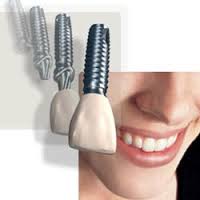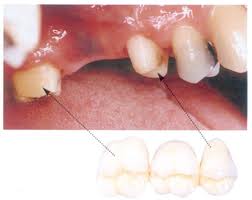Pros and cons of dental implants

Dental implants and other types of prosthetics are widespread today, so there is always a problem of choice.
Whatever they say in defense of implantation, it is not always an effective method.
It is a mistake to believe that today implantation is fully capable of replacing other methods of prosthetics.
Different methods exist together, successfully complementing each other. Where one method is ineffective, it can be replaced by another.
Dental implants have their pros and cons. Since this technique is quite new in the Russian market, its advantages and disadvantages are surrounded by all sorts of speculation and myths.
Dental implantation: the pros and cons of the technique
The advantages of implantation over other methods of tooth restoration are that:
- The installation of implants does not require any manipulation of adjacent teeth.
- Durability. An implant can last a lifetime.
- The volume of bone tissue is preserved, its atrophy does not occur in the area of the missing tooth.
- The implant inside the jawbone evenly distributes the chewing load.
- The effectiveness of the procedure.
- Strong fixation of the implant in the jawbone, which prevents a change in the dentition.
- Elimination of defects in the dentition.
- The presence of an implant in the jaw does not cause a state of discomfort.
- Installation of the implant is possible, as in the absence of one or more teeth, but also with complete edentulousness.
- Aesthetics.
- Large selection of techniques for the operation.
- A variety of designs for implantation.
- Restoring the functions of the dentition.
Cons of dental implants
The disadvantages of dental implants come down to the following factors:

- Long period of engraftment of the structure.
- The presence of a sufficiently large number of contraindications and restrictions on the operation.
- The high cost of manipulation.
- The possibility of postoperative complications.
- The presence of pain and discomfort during surgery and in the postoperative period.
Implant prosthetics, cons of bridges
Dental implants have several advantages over bridge structures:

- No need to grind and depulp abutment teeth.
- During the meal there is no load on the adjacent teeth, because the implant installed in the bone takes on a chewing load. This prevents bone atrophy at the site of the missing tooth.
- High esthetics.
- Service life is not limited.
- There are no premature signs of aging, because bone tissue retains its volume.
- If the prosthesis is damaged, its replacement is quite simple.
- Easy care for the oral cavity and artificial teeth.
The disadvantages of bridge structures:

- The need for depulping and turning of supporting teeth.
- The inevitability of atrophy of the jaw bone in the place of the missing tooth.
- The possibility of further destruction of the supporting teeth from increased load.
- Aesthetics, compared with implantation, leaves much to be desired.
- Over time, a replacement design is required.
- The possibility of an allergic reaction to the metal alloys of which the prostheses are made.